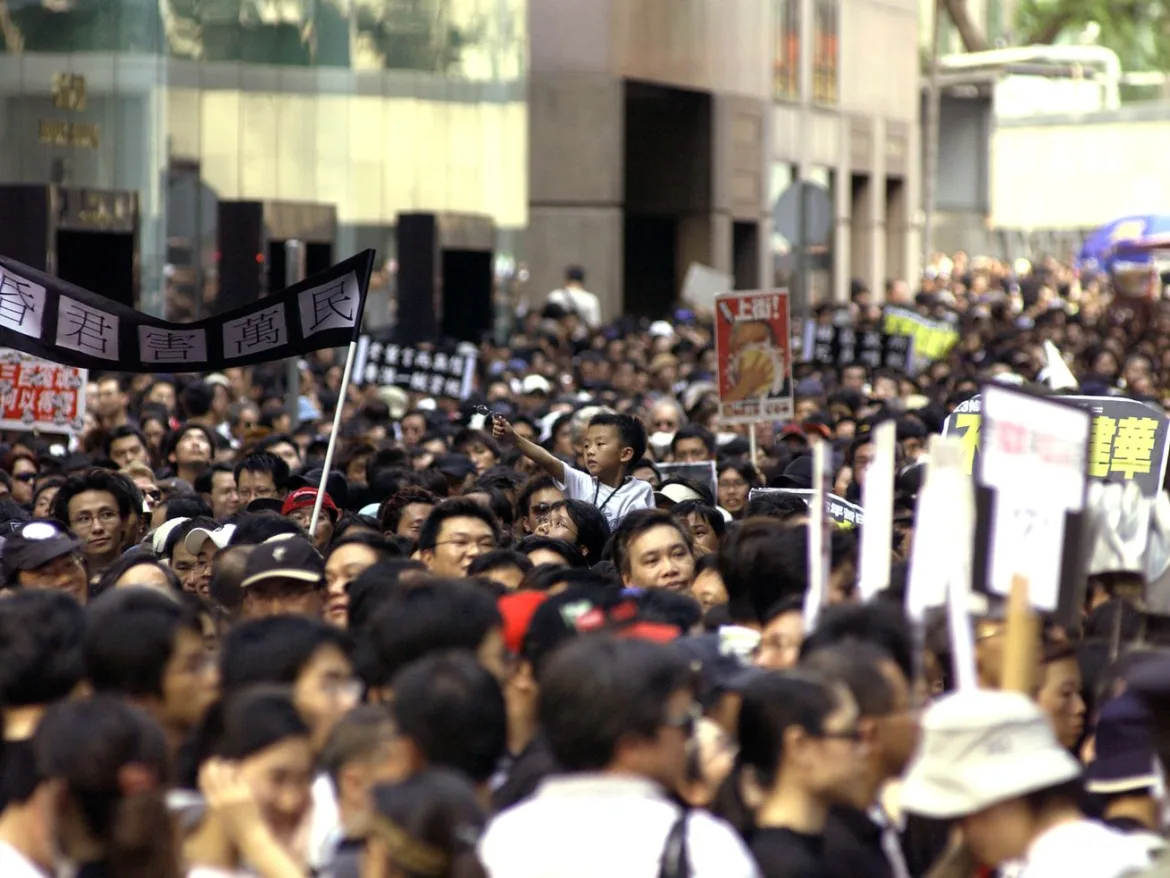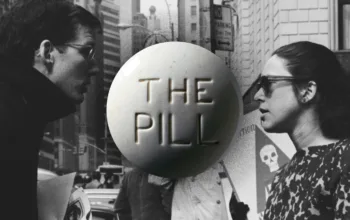21 years ago, half a million Hong Kongers took to the streets to stop Article 23. This month, Beijing finally won.
On Tuesday, the government of Hong Kong passed the latest of a series of increasingly draconian national security laws. This one will target espionage, treason, and foreign political interference — all of which are fuzzily defined at best — and those found guilty of violating some of its tenets could be sentenced to life imprisonment.
This might sound niche or even well-intentioned; doesn’t the US have its own fears about foreign political interference in its elections? But this isn’t really about national security. It is, as Human Rights Watch put it, “Beijing’s latest effort to transform Hong Kong from a free society to an oppressed one where people live in fear.”
That effort has been underway at varying speeds since Hong Kong was returned to Beijing’s control in 1997. Despite complaints from foreign governments, from what remains of Hong Kong civil society, and even from the city’s increasingly beleaguered international business community, that effort is now all but complete.
For Hong Kong’s 7.4 million citizens, the multiyear fight to maintain some semblance of self-government and political rights is basically over. There is no news here.
But the name of this new legislation — Article 23 — will jog the memory of anyone who has lived in or observed Hong Kong over the past quarter-century. It’s a name that was once a symbol of Hong Kongers’ refusal to submit to Beijing’s will and their willingness to take to the streets to fight for their liberty.
The backstory of Hong Kong’s Article 23
Article 23 is found in Hong Kong’s Basic Law, a city constitution of sorts worked out between Beijing and the British government in the years leading up to Hong Kong’s return to Chinese rule. It states, among other things, that Hong Kong’s government will “enact laws on its own to prohibit any act of treason, secession, sedition, subversion against the Central People’s Government” in Beijing.
It wasn’t until nearly six years after the 1997 handover that Hong Kong’s government, with more than a little nudging from Beijing, made a serious effort to pass a law that would fulfill Article 23. Legislation was drafted in February 2003 that, among other provisions, would have allowed the Hong Kong government to ban any organization if it had links to organizations banned in China for national security reasons.
That alarmed pro-democracy groups in Hong Kong, where hundreds of thousands of people from China had found refuge following the Chinese Communist Party’s takeover of the mainland in 1949, as well as the city’s vibrant Christian churches, which feared being forced out of existence.
But there were fears that went beyond the text of the legislation.
The relationship between Hong Kong and China after the former’s return was defined by the phrase “one country, two systems.” Formulated by former Chinese leader Deng Xiaoping, who had a knack for pithy political expressions, this meant in practice that Hong Kong would be largely left to run under its own system of laws — including general civil liberties like freedom of speech and press — while acknowledging that ultimately, Hong Kong was part of the Chinese state.
So Hong Kongers were always on the lookout for signs that “two systems” were becoming one. The introduction of Article 23 legislation in 2003 was that sign.
Still, what could they do about it? The British — who, let’s not forget, had never allowed Hong Kong anything like full democracy — were long gone. They might be a Special Administrative Region and have their own passports, but they were part of the People’s Republic of China. And in any case, Hong Kong was a city built on trade, not politics. Its business was business.
Then came July 1, 2003.
The march — and what came after
On what was a brutally hot day even for a Hong Kong summer, as many as 500,000 Hong Kongers took to the streets to oppose the Article 23 legislation. It was the largest such protest in the city since hundreds of thousands had marched against the Tiananmen Square massacre in 1989.
I was there, walking among the marchers as a young reporter for Time magazine. It was a cross-section of the Hong Kong I knew — young families, elderly men and women who had once come from the mainland themselves, teenagers at their first protest. They were angry about the Article 23 legislation, about the way their government had mismanaged the SARS outbreak earlier that year, and about the dwindling opportunities for good jobs and decent housing.
But what I remember was the pride present in the crowd. They were proud of their identity as Hong Kongers, as a people with a distinct language, a distinct culture, and, yes, distinct rights. They took to the streets because they would not allow that identity and those rights to be taken from them without a fight.
And they won, at least temporarily. The Article 23 legislation was eventually shelved.
But not forever. By the 2010s, with the less pragmatic and more autocratic Xi Jinping leading China, Beijing began to squeeze. Legislation was introduced to bring “moral and national education” to Hong Kong’s curriculum, code for Beijing’s view of history, and what limited representation existed in the city’s legislature was further constrained.
At every turn, Hong Kongers returned to the streets in protest, most famously in the “Umbrella Revolution” of 2014. They won some battles and became a symbol of the global fight for democracy. But it was a war they couldn’t win.
Xi Jinping had no interest in two systems — only his. And with every year, the room for free expression was further curtailed until there was no room at all. The new Article 23 legislation merely confirms that fact.
For one day, though, in July 2003 — and on many days that would follow — Hong Kongers showed what it was to act on freedom.
Update, March 19, 10:30 am: This story, originally published March 13, has been updated to reflect the final passage of the Article 23 legislation.



